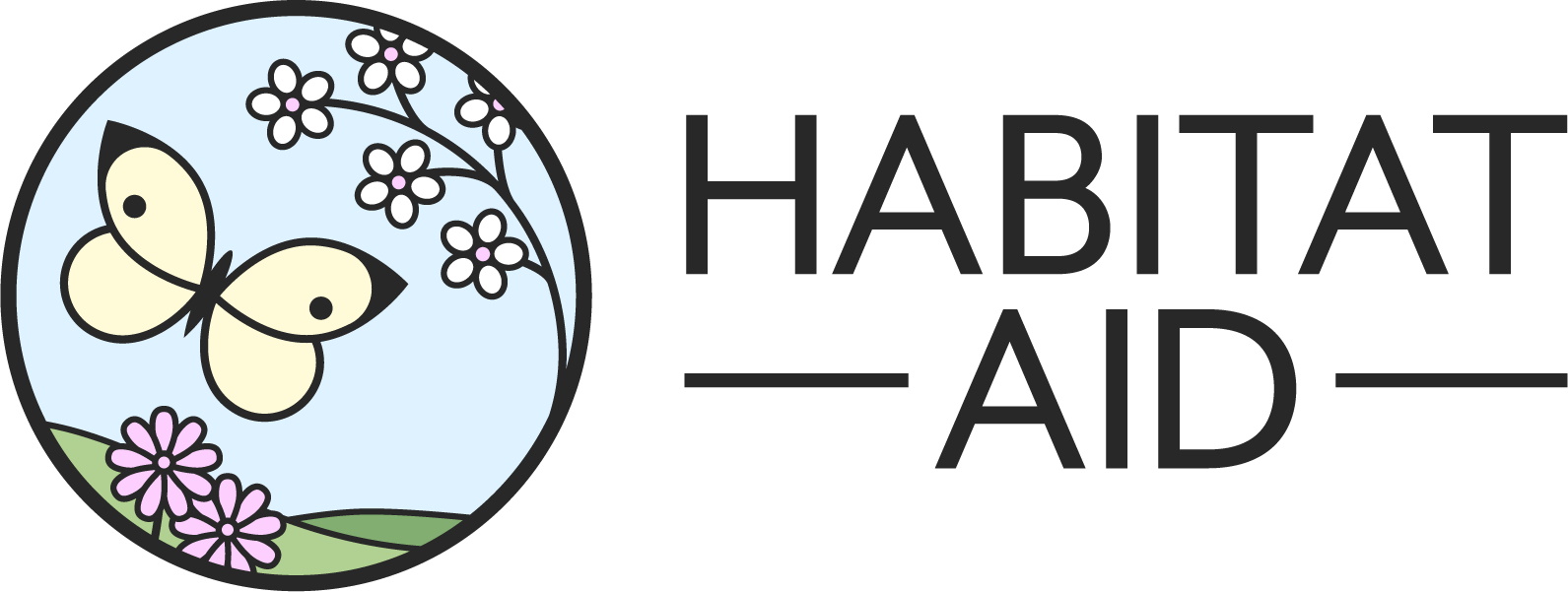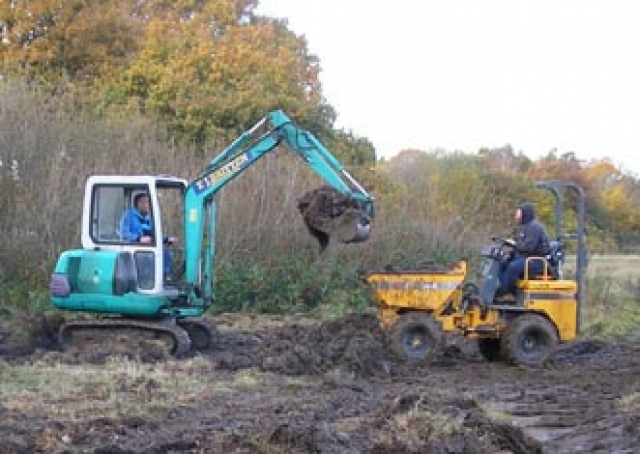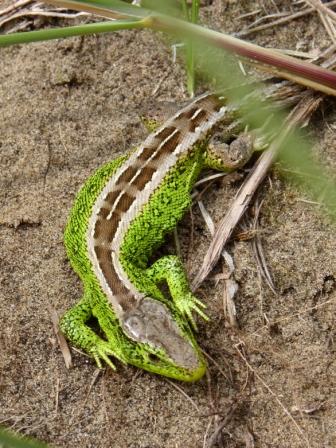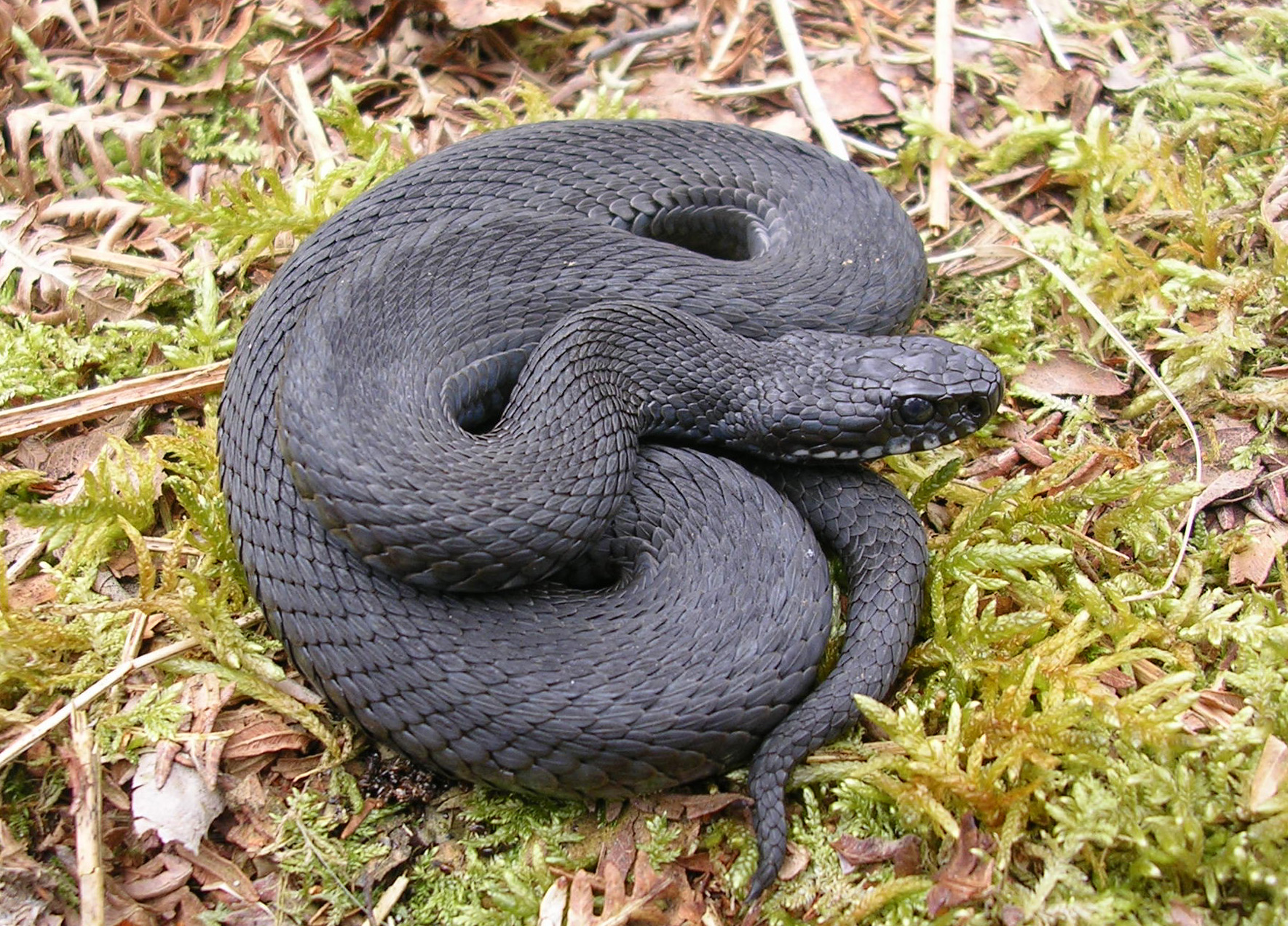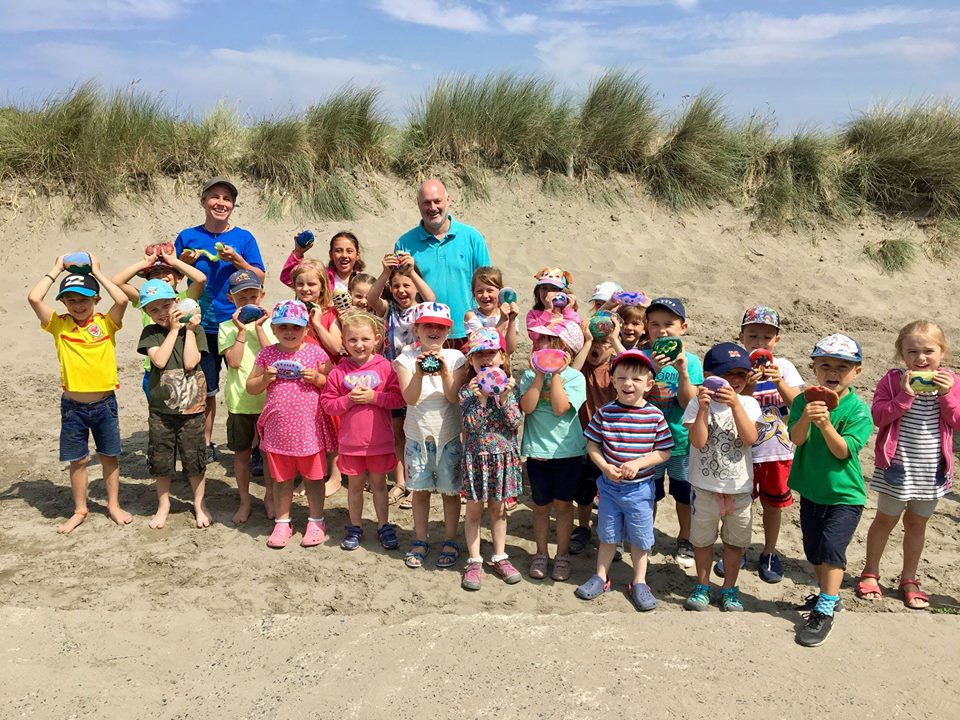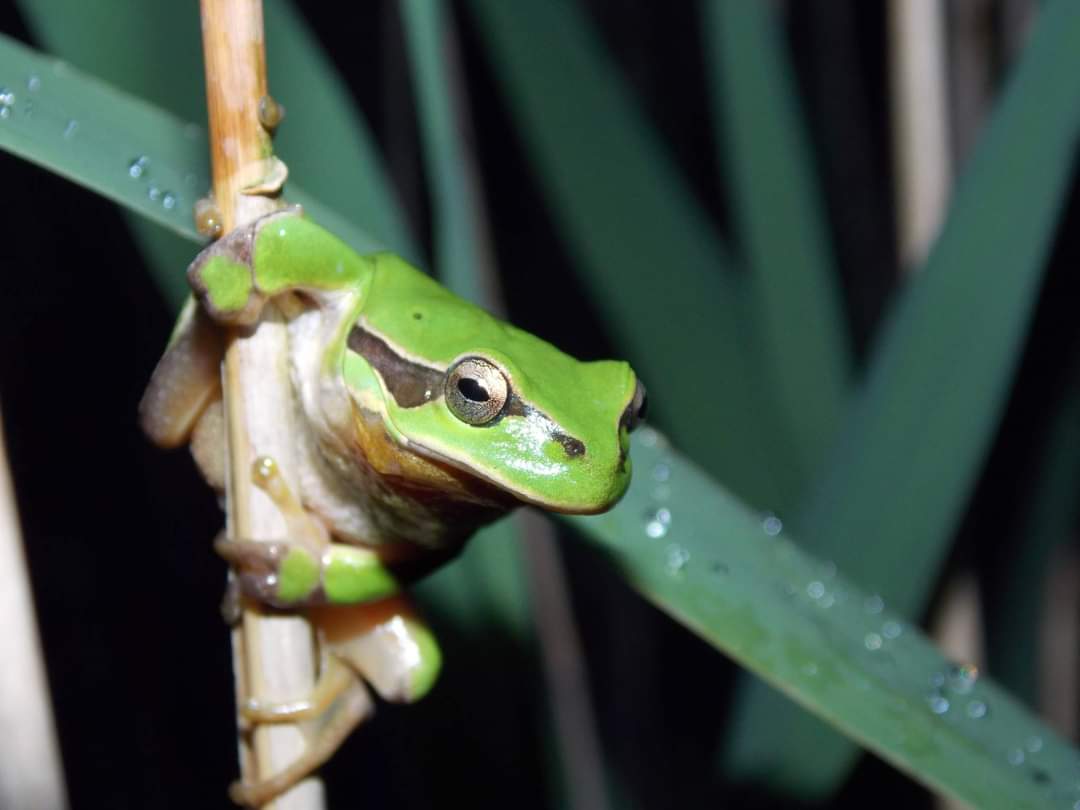The ARGUK 100% Fund supports practical conservation work by the ARGs. ARG volunteers are often best placed to target funding effectively for amphibian and reptile conservation, and sometimes small amounts of money can make a big difference, but nevertheless can be hard to find. The sort of projects funded might include the creation of new ponds or the purchase of tools/materials to help with habitat management, match funding to help secure a bigger project, resources to support events and outreach and materials to support toad patrolling.
It's called 100% because all money donated goes into funding conservation projects – not on administration or overheads.
The ARG UK 100% Fund is open only to groups affiliated to ARGUK.
- Currently there is no application deadline - bids for funds are considered as they are submitted.
The maximum award will be approximately £250 (but we're open to discussion)
Priority will be given to projects that give the best value for money for amphibian and reptile conservation.
Projects that include funding from other sources or involve partnership working will be looked upon favourably.
Items not eligible for funding
- Administrative or training expenses
- Survey expenses.
Application procedure
To apply for a 100% Fund grant, please provide details of your proposed project on the application form and return it as a Word file attached to an email to: This email address is being protected from spambots. You need JavaScript enabled to view it..
document Download the ARG UK 100% application form here (213 KB)
To discuss your project informally prior to an application, please contact Angie Julian, This email address is being protected from spambots. You need JavaScript enabled to view it..
Some examples of projects we have supported - why don't you apply?
Banners and fliers for ARG events and outreach
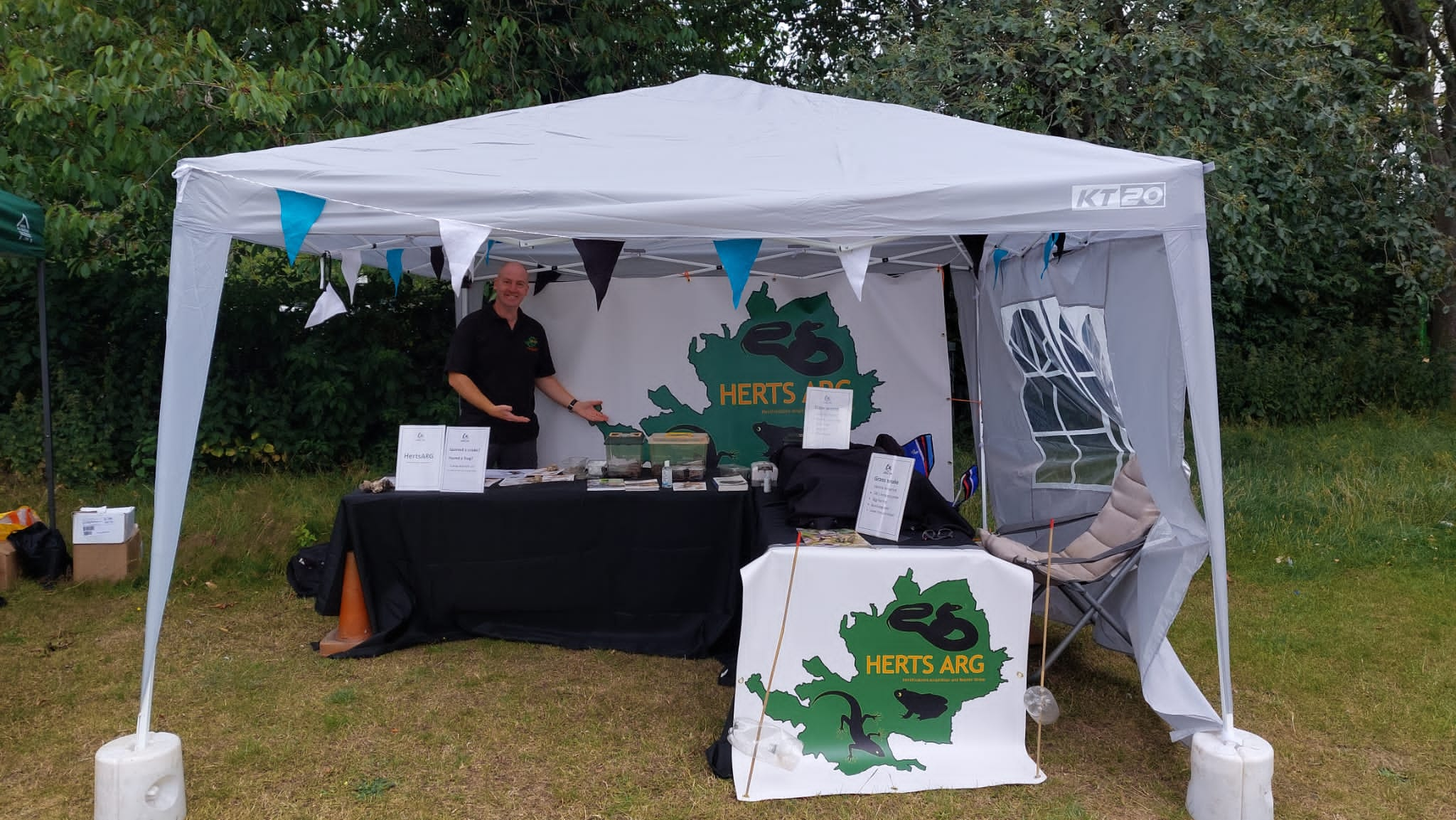 We have helped several ARGs to create banners and posters to support outreach events and practical habitat tasks. These are enormously helpful for advertising your presence at public events, and ensuring that the wider public understand our volunteer roles. We can help with design and print costs.
We have helped several ARGs to create banners and posters to support outreach events and practical habitat tasks. These are enormously helpful for advertising your presence at public events, and ensuring that the wider public understand our volunteer roles. We can help with design and print costs.
Screening for amphibian diseases in Cambridgeshire
We were able to support Cambridge and Peterborough ARG (CPARG) with their amphibian disease screening programme. The objective was to find out the local status of infection by Batrachochytrium dendrobatidis, a fungal parasite which causes chytrid, a disease which has been implicated in amphibian extinctions elsewhere on the planet. The group were also testing for a second species, B. salamandrivorans which has been linked to recent mass mortalities in populations of wild fire salamanders in Belgium and the Netherlands, and has the potential to have a major impact on great crested newts in UK.
Restoring heritage great crested newt ponds on the Mendips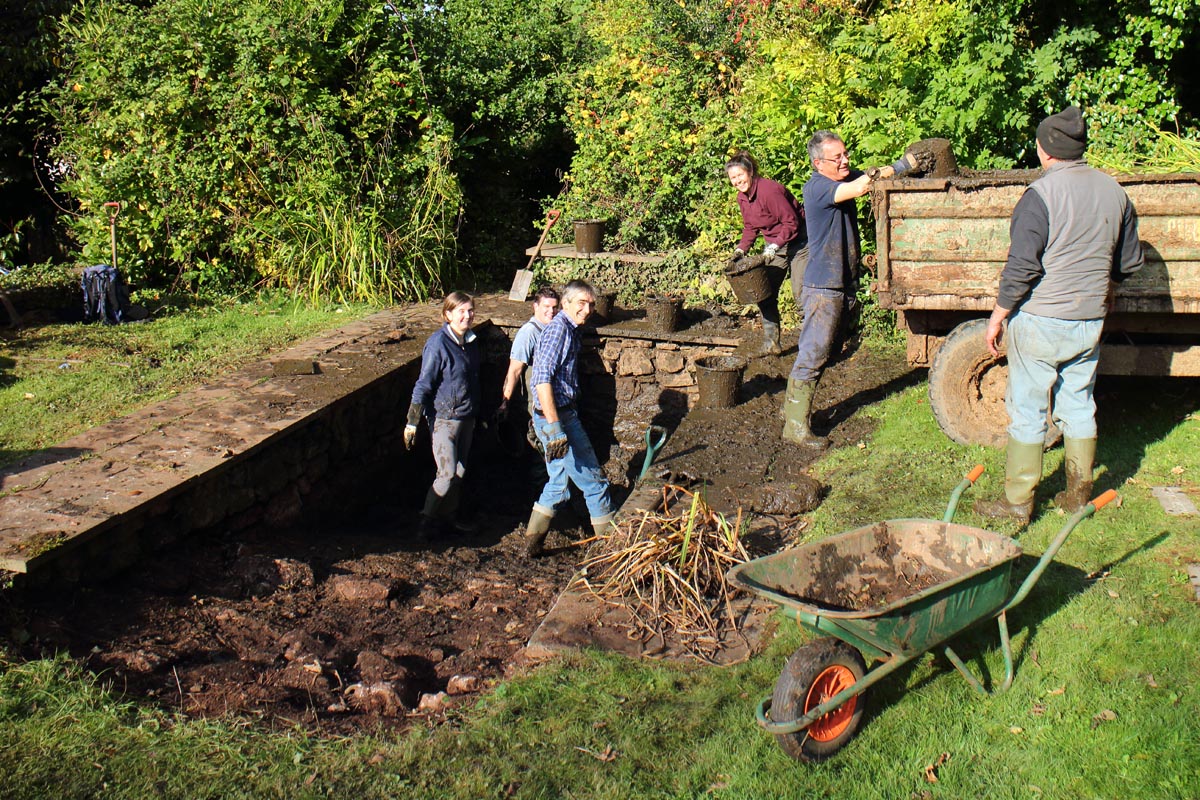
We were able to provide match funding in support of a major HLF application by the Reptile and Amphibian Group of Somerset (RAGS), for the Mendip Ponds Project. This ambitious project aims to restore 14 derelict ancient ponds on the Mendip Hills. These unique ponds, which were originally constructed during the 18th and 19th century using local stone and mortar, constitute an interesting part of the Mendip architectural heritage. They also form important breeding sites for our native amphibians including the strictly protected great crested newt.
Today the surviving ponds are mostly in very poor condition, filled with silt and detritus with sections of the walls in a state of collapse. Surveys in the areas have demonstrated that crested newt populations in the area are small and highly fragmented. Restoration of the ponds by this project would provide the necessary stepping stones to reconnect populations, allowing them to grow and expand across the hills and recolonise areas from which they have disappeared.
We are delighted to report that with the support of ARG UK, among others, sufficient match funding was raised, leading to a successful HLF application which means that restoration works can commence.
The ARGUK 100% Fund is generously supported by Habitat Aid 